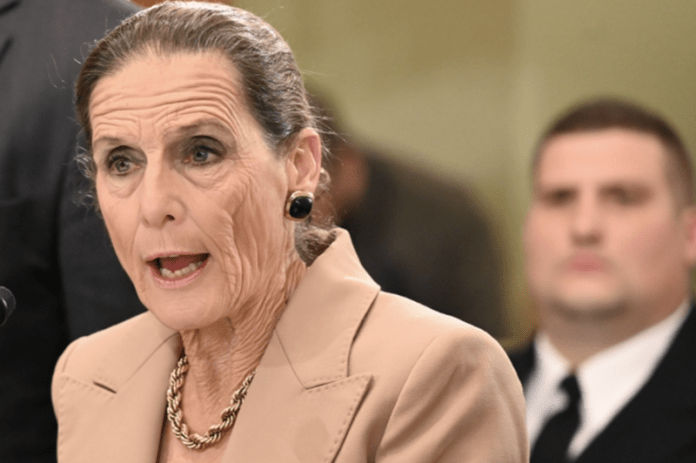Ugandan authorities launched on Monday a clinical trial of a vaccine against the Sudan strain of Ebola that has killed one nurse in the capital, Kampala.
The 32-year-old male nurse died on Wednesday, and was confirmed to have had the Sudan strain through postmortem tests, Diana Atwine, permanent secretary of the health ministry, told reporters.
The vaccine clinical trial is enrolling health workers and others who have been exposed to the virus.
On Jan. 30, Uganda declared an outbreak of Ebola. The total number of cases have now risen to three, with the two additional cases from the family of the deceased, Ministry of Health spokesperson Emmanuel Ainebyoona told Reuters late on Monday. Officials are investigating the source of the outbreak.
The World Health Organization is collaborating with Uganda’s Ministry of Health, the Uganda Virus Research Institute, and the Makerere University Lung Institute to conduct the trial of the vaccine, which was developed by Merck and provided by the International AIDS Vaccine Initiative.
Here are some factors that set this Ebola outbreak apart from previous ones.
The virus
Ebola infection symptoms include hemorrhage, headache and muscle pains. This outbreak is of the Sudan virus disease, part of the Ebola viral family, and involves similar symptoms. It’s a severe, often fatal illness affecting humans and other primates, according to the WHO.
It’s typically transmitted through contact with the bodily fluids of an infected person or contaminated materials.
Uganda has experienced five previous Ebola outbreaks, including one in 2000 that killed hundreds, the WHO said.
The other main type of Ebola is called Zaire.
“Sudan can be as aggressive as Zaire,” with similar signs and symptoms, said Gary Kobinger, who worked at Canada’s National Microbiology Laboratory and helped design a vaccine for the Zaire type of Ebola. What’s concerning, he said, is there isn’t yet an approved vaccine for Sudan, and therapeutics for it aren’t as advanced.
Uganda’s new outbreak
Health workers and others potentially exposed to the virus are being offered doses of the candidate vaccine, according to the International AIDS Vaccine Initiative (IAVI), which provided the vaccine.
Kampala has a highly mobile population of about four million, which could make contact tracing — a key to stemming spread — more challenging.
The nurse who died had sought treatment at a hospital just outside the capital and later travelled to Mbale in the country’s east, where he was admitted to a public hospital. Health authorities said he also sought the services of a traditional healer.
Dr. Craig Spencer, an associate professor of public health and emergency medicine at Brown University in Rhode Island, treated Ebola patients in Guinea and recovered from it himself in New York in 2014.
“Without knowing where the initial case is coming from and the potential for there to be further spread, especially within health-care facilities in the capital, it is definitely a time of heightened concern,” said Spencer.
At least 234 contacts have been identified in this outbreak, according to Uganda’s Ministry of Health.
Speed of response
The vaccine candidate was prepared and ready to be deployed in Uganda, Spencer said. As a result, within days of the outbreak being declared, the clinical trial kicked off, said WHO director general Tedros Adhanom Ghebreyesus in a social media post. The trial will evaluate whether the candidate is efficacious.
Uganda learned from its outbreak of the Sudan type of Ebola two years ago, Spencer said. At the time, a vaccine trial wasn’t ready to be conducted before the outbreak ended.
IAVI said its Ebola Sudan vaccine candidate uses the same viral vector platform as Merck’s single-dose Zaire Ebola virus vaccine.
There is no known treatment for the new Sudan Ebola virus strain rapidly spreading in Uganda, but there’s hope an experimental vaccine could be going into arms in the next few weeks.
“Overall, it’s a very similar vaccine, adapted for Sudan,” Kobinger said. But given there’s a few changes, it needs to be tested in human clinical trials, he said.
This is the first Ebola outbreak since the Trump administration’s decision last week to withdraw from the UN health agency. The United States is by far the WHO’s biggest financial backer, contributing around 18 per cent of its overall funding. WHO’s most recent two-year budget, for 2024-25, was $6.8 billion US.
It’s also the first such outbreak since Trump’s order for a freeze on foreign assistance.
Dr. Isaac Bogoch, an infectious diseases specialist at Toronto General Hospital, said a well-funded and functional WHO is especially important in an era of emerging and re-emerging infectious diseases.
“This could become a much larger regional problem and unfortunately, even global problem if these aren’t dealt with appropriately and quickly,” Bogoch said. “It’s also the right thing to do and the humane thing.”
#Ebola #vaccine #trial #begins #Uganda #outbreak












Leave a Reply